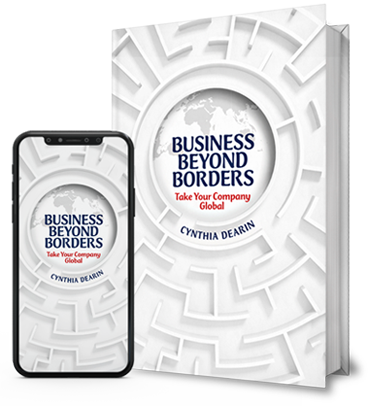I know from experience that one of the key challenges that companies – small and large – face when it comes to international expansion, is bridging the cultural divide. Adapting to the culture of a new market isn’t just about switching up your packaging or rebranding your company’s name so that it works in that country, although these things are important pieces of the puzzle. Cultural difference begins with how a place looks or feels, what people eat and wear and how they speak, but it goes much deeper than that, and that’s where the complexity comes in. Here are some of the key problems that pop up frequently.
You don’t know what you don’t know. Arriving in a new country or dealing with a new culture for the first time usually feels very different to what you’re used to, but it can be hard to put your finger on exactly what is different (apart from very obvious things) and why. This can cause confusion and make your initial engagement with the new setting difficult.
‘Copy + Paste’. I have met a lot of people who are successful in one country who believe that they can just deploy the same strategies that they use to build relationships and negotiate business at home in a new market. It almost never works.
No tools. And finally, the majority of folks do not have the tools and know-how to work in a cross-cultural business setting.
These challenges often lead to friction in business relationships, and potential clients and partners reacting in unexpected or unwelcome ways. As a result, international businesses and global partnerships do not get off the ground because the people trying to create them are not equipped to work cross-culturally. The first step is to get your assumptions and expectations straight when it comes to working internationally.
Assume that cultural differences will exist
Business owners often don’t appreciate just how different the culture of a new market is, before they get started.
This is normal. If you’ve always lived and worked in your own country, you probably won’t be very aware of your own culture and the way it has shaped you. Like the air you breathe, it’s a key part of life, but you can’t see, smell, taste, touch or hear it – it’s just there.
You also won’t be aware of how differently people in other cultures have been shaped by their own culture. The result? You’re unprepared for the extent of the cultural differences that you’ll face as you take your business international.
This can be the case even when you’re expanding to another country which is culturally somewhat like your own. People from the West expect that other Western cultures will be more or less the same, but it’s not always the case. When I was a university student, I had to spend a year abroad as part of my degree. I was supposed to be heading to Japan, as Japanese was a language I’d studied before. But instead, I opted to spend the year in France, because I spoke French reasonably well and I assumed that France would be an easy place to live. I couldn’t have been more wrong. I found myself catapulted into a French university town in the middle of winter. It was cold, it was grey and everyone had already made friends in the first term (which started in autumn). I partially understood the language, but I struggled to understand the social cues and my first six months in France were tough.
I remember being invited to lunch at the home of a friend of a friend in Paris, a couple of months after I arrived. I’d agreed to be there my midday, but got lost in the capital’s winding streets and got to lunch about 40 minutes late – not a good way to make a strong first impression. I turned up bedraggled, embarrassed and anxious that everyone seemed put out. It was only years later that I realised that because many Parisians don’t eat breakfast at the weekend (to keep space for lunch), and people are very hungry by midday, Sunday lunch tends to start on the dot and being late for it is considered a cardinal sin. Over time, I worked out how to fit in in France, but it was a difficult introduction to a culture that I had assumed would be easy.
Five years later when I moved to Egypt, I faced a whole bunch of cultural challenges that were far more extreme than just knowing what the rules around lunch were.
In Egypt, everything was different. Time worked backwards to how it had in France – if I hosted a dinner party, friends would turn up two or more hours later than I’d invited them, and seemed to think it was normal. Taxis would try to charge me multiple times the real fair as I was conspicuously not Egyptian (and taxis had no meters). I was considered strange because I was single and female and lived alone rather than with my family. I once offended an Egyptian friend because I didn’t stay by his bed when he was ill. I assumed he’d want peace and quiet to sleep while he was sick and he assumed that I didn’t care about him because I left him alone. It was a classic case of cultural miscommunication.
I could fill an entire book with stories about the cultural differences that I encountered in Europe, the Middle East, the United States and Asia, but the point that I want to make is this:
It’s better to begin by assuming that cultural differences will exist when you do business internationally… and acknowledge that it’s your job to uncover them.
Appreciate that each market will need a different cultural approach
When companies are expanding to another country which seems culturally similar, they do all sorts of other preparation – create a great pitch deck, work out pricing, investigate logistics – but they don’t do anything on culture because they figure that if they can communicate with their counterparts in the same language then everything will be ok. They make no effort to understand cultural differences and the impact that these could have on how successful they are in the new place.
I have a colleague who experienced first-hand that what works in China, won’t work in Japan. Quinn had worked in China setting up subsidiaries for a large international company. He’d spent two years there, learning how to do things, and as he says “making heaps of mistakes”. Just as he’d mastered working in China, he was transferred to Japan, to do a similar job, because his company assumed he had “Asia skills”. Quinn tried to take what he’d learned in China to Japan but found that it didn’t work at all, because the business culture was different.
Once you recognise that you need to get prepared for cultural differences in the same way that you prepare for every other part of your international business strategy, you can get to work.
References
What Are Some Common Stereotypes, And Why?. Accessed 7 April 2021.
Stereotypes, accessed 7 April 2021.
Knowing Your Place in International Business, accessed 7 April 2021.
Understanding International Business Culture: Using Collectivism to Your Advantage, Becky Destigter, International Trade Blog, 8 September 2013, accessed 8 April 2021.
How Different Cultures Understand Time, Richard Lewis, Insider, 2 June 2014, accessed 8 April 2021.
The Culture Map: Breaking Through the Invisible Boundaries of Global Business, Erin Meyer, 6 December 2014,
Business Beyond Borders, Cynthia Dearin, 2015.
Cultural Differences in Business Communication, John Hooker, December 2008, Tepper School of Business, Carnegie Mellon University.






